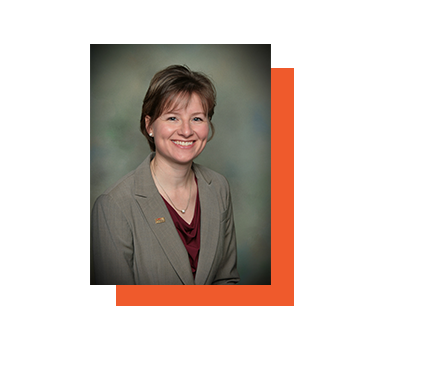Wendy Brownell

2012 Hall of Fame Nominee

Camdenton High School
Roach, MO
2012 Finalist from CSCTFL
Spanish
“The importance of learning another language is second to none. I love learning and using Spanish in my everyday life. I see myself using this valuable resource in my years to come.”
-Casey, 9th grade Spanish Student
World language education in the United States is extremely undervalued, particularly in my home state of Missouri. I believe we as Americans are behind the rest of the world economically, politically, and socially because of our poor knowledge of and appreciation for other languages and cultures. Political and business leaders are aware of this issue; this awareness alone, however, has not translated into strengthened world language programs in our nation. In these tough times world language programs are especially vulnerable to budget cuts. Therefore, advocacy on my part and by that of all world language educators is vital.
While national security and U.S. Economic prosperity are important reasons for becoming highly proficient in another language, students add their own perspective. When I ask students why they study world language their response is increased career and travel opportunities. Many also express the desire to be able to hold fluent conversation in the target language with native speakers.
In order to meet the students’ expectations, world language educators must provide students with a personalized, meaningful learning experience that attracts and retains language learners. Students must feel successful in using the target language for communicative purposes. If the students do not believe their efforts in language class lead to the ability to use the target language outside of the classroom, they will not continue their language study to advanced levels.
The primary mission of world language educators is to teach their students to communicate in the target language in culturally appropriate ways, and the methods for doing so are endless. Our classroom is not only within the school, it is in our community, cyberspace, and the world. We do not just teach language; we teach art, music, science, math, literature and many other subject areas. Our resources reach far beyond the textbook to realia collected during travels, authentic materials provided through technology, and contact with native speakers of the languages we teach.
World language educators have the ability to not only produce proficient language speakers but also to teach students to become more tolerant and understanding of people from other cultures. Furthermore, through world languages education, we have the power to encourage young people to see themselves as world citizens and to take more ownership in issues that face our planet. Finally, world language study allows young people to experience the immense satisfaction that comes from being able to communicate and form lasting relationships with people who speak another language.